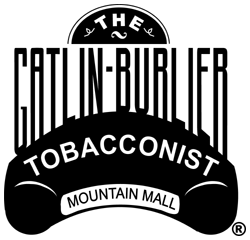You must be 21 years old or older to purchase tobacco products in Tennessee. Other laws and restrictions may be in place. You should be aware of and compliant with you local regulations.
- Home
- Pipes & Tobacco
- The Humidor
- The Lighter Case
- The Chew Bar
- The Cigarette Stand
- Tobacco Cover Up
- Tobacco Politics
- Smokin' Links
- Contact Us
 Age Verification
Age Verification
GATLINBURLIER
TOBACCONIST
~
Mountain Mall
611 Parkway - D Level
Gatlinburg TN 37738
800.862.2204
MENU
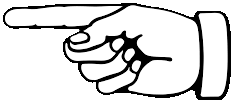 Our menu
Our menu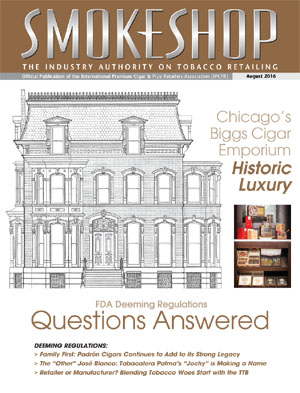 This Article was originally published in Smokeshop Magazine in August 2016. A PDF of this article is available for download here.
This Article was originally published in Smokeshop Magazine in August 2016. A PDF of this article is available for download here.
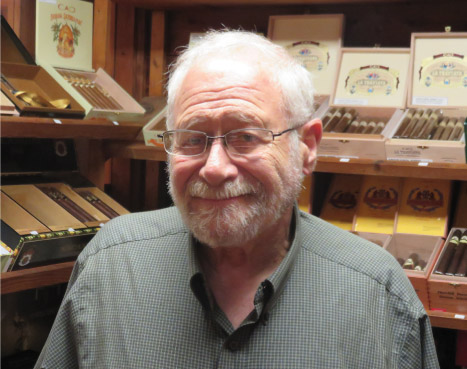
A Warning to Fellow Pipe Tobacco Retailers:
Meet the TTB
Even without the FDA's new deeming regulations on pipe tobacco that appear to shut down in-store blending, few retailers are aware that the TTB already bans the practice-as well as merely repacking bulk blends-unless a manufacturing license in place.
>BY IRA LAPIDES
After our initial manufacturer's audit by the U.S. Bureau of Alcohol, Tobacco, Firearms and Explosives (ATF), I sat listening to the U.S. Department of the Treasury's Alcohol and Tobacco Tax & Trade Bureau (TTB) agent tell me that his agency "really does not have enough auditors or agents" to enforce the 1953 tax act upon the other retailers in the country that he had just enforced upon my business. Further, he said that his agency does not really want to create another four or five thousand new tobacco manufacturers out of the current retail store community. As he left our offices, he said that I would do a great service to my retail brethren were I to be an ambassador to the retail tobacco industry on behalf of the TTB by telling them that their businesses were all illegal if they blended, packaged, or repackaged tobacco unless it was done in front of the customer and only upon demand.
A retail tobacconist cannot prepackage two ounce or half pound bags of tobacco from the five pound bags that pipe tobacco normally is shipped in. Under the TTB's interpretation of the 1953 IRS Tax Act there is no way that a tobacconist can ship tobacco to customers in anything other than the five pound package in which the tobacco was received from the manufacturer or distributor. In a footnote which was an exception to some of the language in the tax law he enforced upon us, the retail tobacconist is performing the actions only allowed to those who hold manufacturers licenses when repackaging tobacco. It is a violation to repackage-even without the action of blending. It is illegal to prepackage two ounce bags of your most popular tobaccos, making them ready for sale prior to being requested to do so by the final user. During slow times in the store, it is not legal to package tobacco to get ready for upcoming busier periods. It is not legal to package tobacco off-site from the retail store.
Now, with the addition of new regulations through the U.S. Food and Drug Administration (FDA)'s issuance of the provisions of its "deeming regulations," it becomes even less clear as to where blending and manufacturing differ. With both the "deeming regulations" and the TTB's interpretation of its own IRS regulations, it is really not possible to be a retail tobacconist anymore.
The contortion of the English language and circular arguments made by the smug, unregulated regulators of the FDA who participated in the May 25th webinar unveiling the new regulations would make any Orwellian debate coach proud. In government doublespeak, the chunk of briar and vulcanite stem which makes up a pipe is now classified as a tobacco product, and via such pronouncement could be taxed by weight as if it were made from tobacco. It was not long ago that I had to defend my business when the government was cracking down on glass pipes, which we do not carry, by saying that our wooden Dunhills, Nordings, Petersons, and Savinellis were fine collectibles and tobacco smoking pipes. Now to ward off the attacks on my products, need I defend my pipes by professing that they are truly made for "dope smoking" in the states where recreational drugs are legal? The continual changing of the rules and the unbridled enthusiasm of those who have made their anti-tobacco campaign a radical religion parallels other models. Like those who are religious zealots, they could not care less about the consequences of their discriminatory actions and can justify even the most atrocious corrupted thinking.
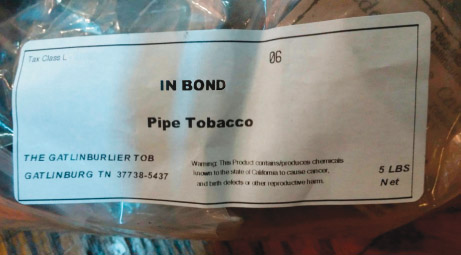 Without the "In Bond" designation, retailers cannot repackage and sell bulk tobacco in
smaller portions, even without blending, according to existing but under enforced TTB rules.
Without the "In Bond" designation, retailers cannot repackage and sell bulk tobacco in
smaller portions, even without blending, according to existing but under enforced TTB rules.
Since 1978, I have been warning of the days coming and each time one of my warnings came to pass I was still dismissed and ignored by those who think themselves smarter. Long ago, I made the suggestion that the cigar industry look into the fact that FDA regulations might be halted if the industry were to invoke the protections that it had under the NAFTA agreements. I was assured that they could take care of themselves and they had even protective legislation underway in Congress. All these years later, I am left to doubt their assurances. Given that the industry has never really made a committed effort to help me to protect my business, the fact that the Gatlinburlier Tobacconist still exists after 38 years can be nothing more than a testament to "grit," the newly discovered characteristic that education professionals are now striving to teach our children.
My commitment to the cause of fairness for smokers has included my running for the Tennessee Senate so as to gain a larger voice in at least state law concerning the treatment of smokers. Before that, I endured a 21-day solid food hunger strike-consuming only water and vitamins-in protest of the loss of the capacity to argue our side of the issues on television and radio. The personal costs I have endured in holding onto the "gather together and fight back" theory of self defense are too long and personal to go into, but because I was a proponent of self-protection, I was removed from the National Board of Directors of the Retail Tobacco Dealers of America (RTDA) at the association's final trade show and convention held in Houston, Texas in 2007 [before it rebranded itself as the International Premium Cigar & Pipe Association].
Because of warnings about the threats to retailers, the other board members thought that my call to protect ourselves might upset our adversaries. Lord knows you don't want to make a crazed, discriminatory monster of a bully mad. Even though 18 percent of the public still uses tobacco products, we and our customers have not been able to coordinate the kind of defense our numbers should permit. Given that a mere .3 percent of the U.S. population designate themselves as transgender, it makes no sense and marvels the mind that so much power and attention is paid to such a small group. Given that the percentage of the American population that uses tobacco products is sixty times greater, it is incredible to me that we can not coalesce to be a great enough force to at least gain recognition for the kind of unfair discrimination that we suffer.
A May 26th email from the IPCPR asked the question, "Pipe Tobacco: Are You a Retailer or a Manufacturer?" Let me tell you that to the TTB, an arm of the Department of Home Land Security, you as a small mom-and-pop retailer of tobacco are manufacturers. According to the TTB you will need to get Manufacturers Permits (a 467 day process) and report and pay every 15 days your own Federal Excise Taxes (FETs). You will need to make reports about how much tobacco you used each month. You will need to set up a separate place in your establishments to be able to receive tobacco shipments "in bond" and hold tobacco separated from tobacco that has been "tax paid." You will need to account for every ounce of tobacco as it moves between the "un-tax paid" and the tax paid areas of your business on a daily basis. You will need to obtain a security bond to assure that your tax liabilities for your tobacco held in bond are covered. If need be, you will have to increase that bond within ten days of approaching your bonded limit or subject yourself to the loss of your manufacturers status.
The IPCPR email went on to say that, "In its comments to the FDA, IPCPR argued for a "safe harbor" for retailers blending up to 5,000 pounds of pipe tobacco per year and suggested how the FDA should define pipe tobacco." The email clearly states, "On both accounts, FDA declined to do so, hence any blending of pipe tobacco would result in retailers needing to comply with the statutory and regulatory requirements which apply to tobacco product manufacturers."
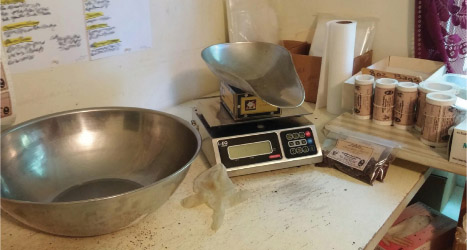 The tools of blending are now the mechanisms of manufacturing
The tools of blending are now the mechanisms of manufacturing
Regardless of such hopes, after my ordeal with the government I can assure you that all retailers will be considered manufacturers once the government closes the noose around our collective necks.
This last IPCPR statement is only important since it is to be recognized as but a desire of the association, because in truth the association and its predecessors and even the motivations of the large cigarette manufactures have all been at odds with helping to keep the retailers of tobacco from being the target of discrimination and persecution. It saddens me, but I feel as if depending upon the alphabet soup of associations to really protect me is but self-deception. Waiting for them to protect me is like hiding behind a piece of plastic wrap for protection in a gun fight. It is no more useful than hiding under my desk to protect myself in the case of nuclear war. Such was the advice I got from the Federal government when I was in the sixth grade. I think it was then, when I was around 11, that I figured out that our government was not really very bright. It was not long after that I understood the ironic humor in the notion that government was here to help me to help myself. TTB Agents will tell you that they are there to help you help yourself, but they neglect to tell you that they are really attempting to put you out of business. They will tell you that you need do this or that or they will put you in jail, confiscate your property, and assail your wife's absolutely astounding, wonderful reputation. They will play good cop/bad cop and any other game just to coerce you with law, gun, and badge to curtail your mail order business. In my case it cost me a $100,000 or better in lost business. Clearly, if you pay attention, you can hear the background chuckle in their voice when they say "we are only here to watch out for your welfare, here to help you to help yourself."
After my business was attacked by the government, my asking for help was met with silence. As with my run for state Senate and my lonely days without food or support over 20 years ago, my search for assistance, my seeking of help from many sources proved to me that I was to be left alone to fight for my own existence. Fortunately, this was a lesson I had learned earlier. Had the .3% population had such assistance, chances are that transgender people would not be able to go to the bathroom any place in America.
G&B Tobacco Co., our Tennessee distribution and wholesale company which allows us to bring out-of-state product into the state, is now also a manufacturer of tobacco products. Thus we are fully vertically integrated as a manufacturer, wholesale distributor, and retailer-all backed by a government-issued manufacturers TP number. What that means for my retail store in answering the question as to whether I am a manufacturer or a retailer is that I can say that I am all of what it is the government is "deeming" we should be, until it decides to "deem" otherwise. As complex as this is for me, it is very different from what the answer will be for those retailers who are about to be squashed between the two millstones that are the FDA and the TTB.
Not that folks are beating down my door for advice, but it would be my suggestion that retailers quickly begin the process of becoming licensed tobacco manufacturers by going to the TTB Permits Online website and beginning the application process. Unless we are able to pull together to protect ourselves, we may as well get ready to endure the absurdly abusive regulations made up by a group of unregulated regulators.
Ira T. Lapides, PhD, is the founder and owner of G&B Tobacco Co. Inc., and Gatlinburlier Tobacconist.
